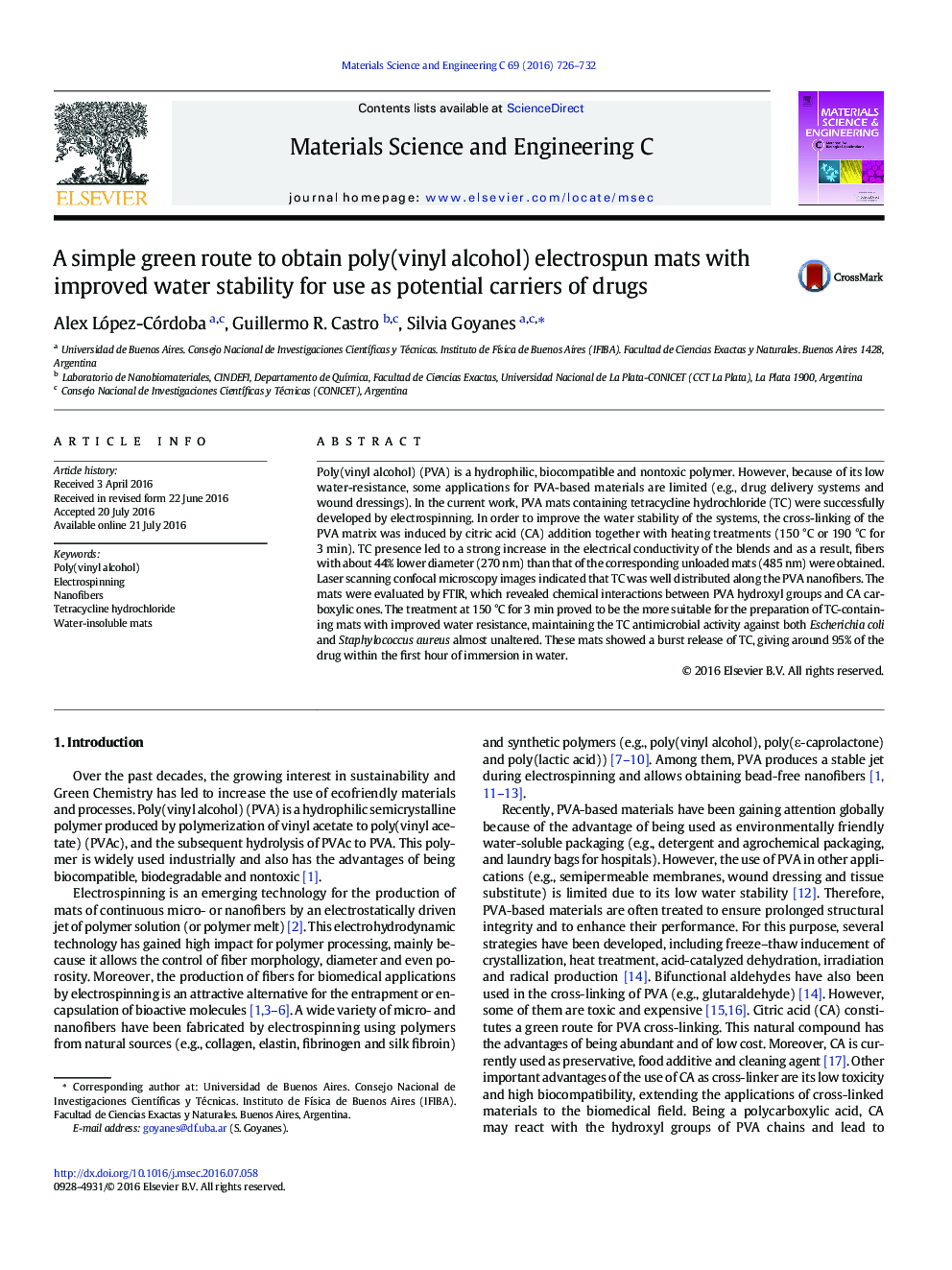| Article ID | Journal | Published Year | Pages | File Type |
|---|---|---|---|---|
| 1427906 | Materials Science and Engineering: C | 2016 | 7 Pages |
•Tetracycline HCl-containing PVA/citric acid mats were developed by electrospinning.•The water stability of the mats was improved by heat-induced cross-linking.•The mats released around 95% of the drug into the aqueous medium within 1 h.•The new materials could be used as drug local delivery systems for wound healing.
Poly(vinyl alcohol) (PVA) is a hydrophilic, biocompatible and nontoxic polymer. However, because of its low water-resistance, some applications for PVA-based materials are limited (e.g., drug delivery systems and wound dressings). In the current work, PVA mats containing tetracycline hydrochloride (TC) were successfully developed by electrospinning. In order to improve the water stability of the systems, the cross-linking of the PVA matrix was induced by citric acid (CA) addition together with heating treatments (150 °C or 190 °C for 3 min). TC presence led to a strong increase in the electrical conductivity of the blends and as a result, fibers with about 44% lower diameter (270 nm) than that of the corresponding unloaded mats (485 nm) were obtained. Laser scanning confocal microscopy images indicated that TC was well distributed along the PVA nanofibers. The mats were evaluated by FTIR, which revealed chemical interactions between PVA hydroxyl groups and CA carboxylic ones. The treatment at 150 °C for 3 min proved to be the more suitable for the preparation of TC-containing mats with improved water resistance, maintaining the TC antimicrobial activity against both Escherichia coli and Staphylococcus aureus almost unaltered. These mats showed a burst release of TC, giving around 95% of the drug within the first hour of immersion in water.
Graphical abstractFigure optionsDownload full-size imageDownload as PowerPoint slide
